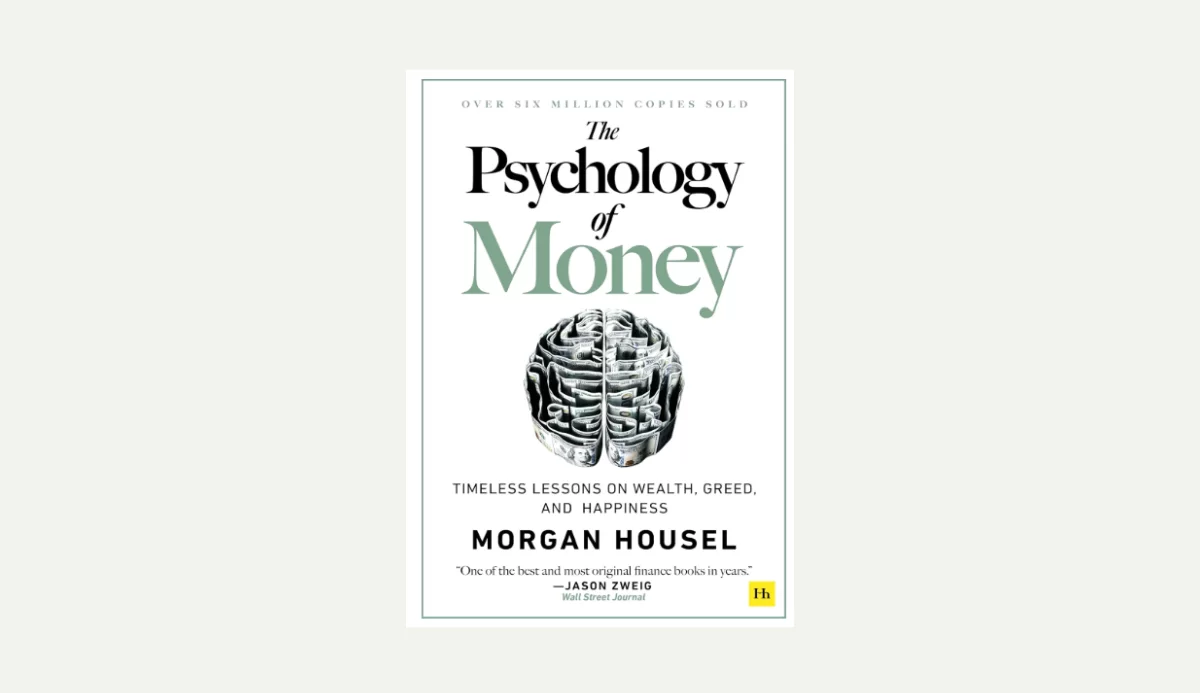
You’re scrolling through social media, watching everyone else seemingly nail their personal development journey while you’re still figuring out where to start. I can tell you from years of coaching people through this exact feeling, the truth is they don’t have it figured out either. What you’re seeing are highlight reels, not the messy reality of growth. The real secret isn’t copying their playbook, it’s building your own system that actually fits your life, and I’m about to show you exactly how.
Start With Micro-Habits That Take Less Than Two Minutes
When most people think about personal growth, they immediately jump to massive transformations that require hours of daily commitment, but I can tell you from years of experience that this approach sets you up for failure. You’ll burn out within weeks, guaranteed.
Instead, start with micro-habits that take under two minutes. I’ve seen executives transform their leadership by doing ten push-ups each morning, or reading one page daily. These tiny actions compound into serious power over time.
Pick one micro-habit right now. Maybe it’s writing three sentences in a journal, doing five deep breaths, or organizing your desk for ninety seconds. The key isn’t the habit itself, it’s proving to yourself you can follow through consistently. This builds the discipline foundation that’ll support bigger changes later.
Consider starting with the one-touch rule – simply handle items once and put them directly in their designated place rather than setting them down to deal with later.
Design Your Own Success Metrics Instead of Following Others

Building consistent micro-habits is just the beginning, because once you’ve proven you can stick to small commitments, you’ll face a much bigger challenge: defining what success actually looks like for your life.
I can tell you that most people never escape the trap of chasing other people’s definitions of winning. They’re climbing ladders leaning against walls they didn’t even choose. You’ll see them grinding toward six-figure salaries while secretly craving creative freedom, or forcing themselves into leadership roles when they’d rather master their craft.
I’ve never seen true power come from borrowed metrics. Real strength emerges when you design your own scorecard. Maybe your version of success means having three deep friendships instead of hundreds of shallow connections, or building something meaningful over getting rich quick. The most successful people understand that clear daily goals must align with your personal values, not society’s expectations of what you should achieve.
Create a Personal Mission Statement That Reflects Your Values
Most people stumble through life without a clear sense of direction because they’ve never pinned down what they actually stand for. I can tell you from experience, creating a personal mission statement changes everything. It becomes your North Star when tough decisions arise.
Start by identifying your core values. What principles won’t you compromise on? Write them down. Then craft one powerful sentence that captures who you are, what you believe, and what you’re building toward.
I’ve never seen someone regret having clarity about their purpose. Your mission statement isn’t corporate fluff—it’s your personal constitution. When opportunities come knocking, you’ll know instantly if they align with your values. When people try to pull you off course, you’ll have an anchor that keeps you steady and focused.
As Maya Angelou wisely observed, success comes from liking yourself and your work—and a mission statement rooted in authentic satisfaction ensures every choice you make brings you closer to that meaningful alignment.
Build a Learning Schedule Around Your Natural Energy Patterns

Your brain operates on predictable energy cycles throughout the day, and ignoring this biological reality will sabotage your learning efforts before you even begin. I can tell you that most people waste their peak mental hours scrolling social media, then wonder why they can’t absorb new information at night.
Track your energy for one week. Notice when you feel sharp versus sluggish. I’ve never seen someone successfully build new skills by fighting against their natural rhythms. If you’re a morning person, tackle complex learning before 10 AM. Night owls should reserve evenings for deep work.
Schedule demanding subjects during your high-energy windows, lighter review during medium periods, and skip learning entirely during your lowest points. Your energy patterns are non-negotiable. Those quiet early hours before distractions emerge offer a particularly powerful window for focused learning, when you can create technology-free zones that promote the deep concentration complex subjects demand.
Practice the Art of Saying No to Protect Your Growth Time
Unless you develop an aggressive filter for incoming requests, well-meaning people will devour every hour you’ve set aside for growth. I can tell you from experience, saying yes to everything feels generous, but it’s actually sabotaging your future power.
Saying yes to everything feels generous, but it’s actually sabotaging your future power.
Your growth time isn’t negotiable. Here’s how I’ve learned to protect it:
- Create a standard “no” response – “I’m not available for additional commitments right now” works perfectly without lengthy explanations
- Schedule growth activities like unmovable appointments – treat them with the same respect you’d give a client meeting
- Practice the 24-hour rule – never commit immediately to requests, always sleep on it first
When evaluating which requests deserve your time, use the Eisenhower Matrix to sort opportunities by their urgency and importance to your personal goals.
I’ve never seen anyone achieve significant personal transformation while constantly accommodating other people’s agendas. Your boundaries determine your trajectory.
Develop a Daily Reflection Ritual That Works for Your Lifestyle
When you skip daily reflection, you’re fundamentally driving blindfolded toward your goals. I can tell you from years of coaching high performers that the ones who dominate their fields all share this habit: they pause, assess, and recalibrate daily.
Your reflection ritual doesn’t need Instagram-worthy meditation corners or hour-long sessions. I’ve seen executives transform their lives with five-minute car reflections after work, asking three questions: What worked today? What didn’t? What’s tomorrow’s priority?
Others use voice memos during their commute, talking through wins and lessons. The format doesn’t matter—consistency does. Pick a time you’ll actually stick to, whether it’s morning coffee, evening walks, or bedtime journaling.
Consider expanding your practice with monthly deep-dive sessions where you ask yourself powerful questions about your greatest achievements, comfort zone challenges, and relationships that energize versus drain you.
Without reflection, you’re just busy, not strategic. Make this non-negotiable.
Identify and Challenge Your Limiting Beliefs About Progress

That daily reflection will surface something uncomfortable: the mental barriers you’ve built around what’s possible for you. I can tell you from experience, these limiting beliefs about progress are progress killers. They’re the whispered lies that keep you playing small when you’re designed for impact.
Here’s how to dismantle them:
- Catch yourself using absolute language – “I always fail at this” or “I never stick with anything” are lies your brain tells you to avoid risk.
- Question the source – Where did this belief come from? A failed attempt? Someone else’s opinion? Most limiting beliefs crumble under scrutiny.
- Reframe with evidence – Replace “I’m not good at learning new skills” with “I’ve successfully learned driving, cooking, and my job.”
Once you’ve identified these limiting beliefs, examine your self-talk patterns to understand how they perpetuate negative thought cycles that undermine your confidence.
You control the narrative about your capabilities.
Set Boundaries With Social Media to Reduce Comparison Triggers
While you’re busy rewiring those limiting beliefs, social media is quietly sabotaging your progress from another angle. I can tell you that endless scrolling through highlight reels destroys self-confidence faster than any internal critic ever could.
You need strict boundaries, not wishful thinking about moderation. Set specific times for checking apps, maybe 15 minutes after lunch and 10 minutes before dinner. Turn off all notifications except actual messages from real people. Unfollow accounts that trigger comparison, even successful people you admire.
Remember that algorithm manipulation deliberately targets your emotional vulnerabilities to keep you scrolling longer, making platforms profit when you feel inadequate. I’ve never seen anyone build genuine confidence while constantly measuring themselves against curated perfection. Your growth happens in private moments, messy attempts, and small wins that don’t photograph well. Protect that sacred space fiercely.
Find an Accountability Partner Who Understands Your Journey

Creating boundaries with technology only gets you halfway to sustainable growth. You need someone in your corner who won’t let you quit when things get messy. I can tell you from experience, the right accountability partner changes everything.
- Someone who’s walked a similar path – They understand the specific struggles you’re facing, not just growth in general
- A person who’ll call you out with love – They won’t coddle you when you’re making excuses or falling into old patterns
- Someone committed to regular check-ins – Weekly conversations, not occasional texts when you recollect
I’ve never seen anyone achieve lasting transformation alone. Find someone who gets your journey, respects your goals, and won’t accept your BS excuses. Remember that quality relationships open doors that quantity never could, so invest deeply in finding the right accountability partner rather than collecting multiple surface-level connections.
Experiment With Different Goal-Setting Methods Until One Clicks
Why do most people struggle with goals year after year? They’re using the wrong system for their brain. I can tell you from experience, there’s no one-size-fits-all approach to goal-setting, and that’s exactly why you need to experiment.
Try the SMART method first – specific, measurable, achievable, relevant, time-bound. If that feels too rigid, switch to OKRs (Objectives and Key Results). Maybe you’re more visual, so mind mapping works better. I’ve never seen anyone succeed long-term using a method that doesn’t match their thinking style.
Some people thrive with daily micro-goals, others need quarterly big-picture targets. Test habit stacking, the 1% rule, or backward planning from your end vision. For those who find annual planning overwhelming, consider the 12-week approach that breaks down major goals into shorter, more manageable cycles. Keep experimenting until you find your method.
Create a Personal Growth Library Tailored to Your Interests
Once you’ve locked in your goal-setting system, you need the right knowledge to fuel your growth. I can tell you that building a personal growth library isn’t about collecting random bestsellers—it’s about curating resources that align with your specific ambitions and learning style.
Building a personal growth library isn’t about collecting random bestsellers—it’s about curating resources that align with your specific ambitions.
Here’s how to build your power-focused library:
- Identify your growth gaps first. If you’re weak in leadership, don’t waste time on productivity books. Target your actual deficiencies with laser precision.
- Mix formats strategically. Combine books, podcasts, and video courses. I’ve never seen anyone master complex skills through just one medium.
- Create a review system. Revisit key insights monthly. Knowledge without application dies quickly, and you can’t afford that waste.
Schedule Regular Life Audits to Assess What’s Actually Working
While most people drift through years without checking their compass, successful individuals conduct brutal, honest assessments of their progress every quarter. I can tell you, the people who dominate their fields don’t just hope things are working—they measure, evaluate, and pivot ruthlessly.
Schedule quarterly life audits like board meetings with yourself. Examine your relationships, career trajectory, health metrics, and financial position. Ask the hard questions: What habits are actually moving you forward? Which relationships drain your energy? Where are you fooling yourself?
I’ve never seen anyone achieve real power without regular self-examination. Create a simple scorecard rating each life area from one to ten. Track patterns over time. The insights will shock you, and more importantly, they’ll guide your next strategic moves toward genuine influence.
Practice Self-Compassion When Your Progress Feels Slow
Even when you’re doing everything right, progress often crawls at a pace that makes you want to punch walls. I can tell you from experience, this is where most ambitious people sabotage themselves with brutal self-criticism.
The gap between effort and results is where ambitious dreams go to die under the weight of impatience.
Self-compassion isn’t weakness—it’s strategic fuel for sustained growth. When you beat yourself up for slow progress, you’re literally damaging the neural pathways needed for improvement.
- Talk to yourself like you’d talk to your best friend—no harsh language you wouldn’t use on someone you respect
- Acknowledge that everyone struggles with invisible battles—your timeline isn’t their timeline
- Celebrate micro-wins daily—I’ve never seen anyone maintain momentum without recognizing small victories
Invest in Skills That Compound Over Time Rather Than Quick Fixes
Your slow progress makes perfect sense when you realize you’re probably chasing the wrong type of skills. Most people grab quick fixes like weekend workshops or motivational YouTube videos, then wonder why nothing sticks.
I can tell you from experience, real power comes from compound skills that build exponentially over time.
Focus on foundational abilities: critical thinking, emotional regulation, strategic communication, and systems thinking. These aren’t flashy, but they multiply everything else you do. I’ve never seen someone master persuasion without first developing deep listening skills, or become wealthy without understanding delayed gratification.
Stop hunting for shortcuts. Start a daily reading habit, practice difficult conversations, learn to code, or study negotiation. These investments feel slow initially, but they’ll separate you from everyone else within five years.
Build a Support Network of People at Different Life Stages
If you’re only connecting with people your exact age and life stage, you’re missing most of the wisdom available to you. I can tell you from experience that your growth accelerates when you intentionally build relationships across generations and circumstances.
- Find mentors 10-20 years ahead – They’ve already navigated the challenges you’re facing and can show you shortcuts through common mistakes.
- Connect with peers going through different shifts – Someone changing careers while you’re building yours offers fresh perspectives on risk and opportunity.
- Mentor someone earlier in their journey – Teaching others crystallizes your own knowledge and keeps you connected to emerging trends.
I’ve never seen someone regret having too much diverse wisdom in their corner.
Document Your Growth Journey to Track Progress You Can’t See

Most people abandon their growth efforts because they can’t see the progress they’re actually making. I can tell you from experience, the changes happening inside you aren’t visible day-to-day, but they’re real and powerful.
Start a simple growth journal. Write three sentences weekly about what challenged you, what you learned, and how you responded differently than before. I’ve never seen anyone regret tracking their journey this way.
Take monthly photos of yourself, record voice memos about your goals, or screenshot conversations where you handled conflict better. These become proof of your evolution when doubt creeps in.
Six months later, you’ll read your early entries and think, “I can’t believe that used to be hard for me.” That’s when you’ll realize your power has been building all along.
Embrace Seasons of Rest as Essential Parts of Development
While everyone talks about hustle culture and constant momentum, the smartest people I know understand that rest isn’t the opposite of growth—it’s where growth actually happens. I can tell you from experience, your breakthrough moments don’t come during the grind—they surface when you finally give your mind space to process everything you’ve absorbed.
You need to strategically schedule these rest periods like you’d any essential meeting:
- Take complete breaks from learning new information for 2-3 days monthly to let your subconscious integrate everything
- Use physical rest periods for mental reflection, not mindless scrolling or entertainment
- Plan seasonal slowdowns where you focus on application rather than acquisition of new skills
I’ve never seen someone achieve sustainable power without mastering the art of strategic rest.
Conclusion
You don’t need to have everything figured out right now. I can tell you that personal growth isn’t a race, and comparing your chapter one to someone else’s chapter twenty will only slow you down. Start where you are, use what works for your life, and trust that small, consistent actions compound into massive change. Your path doesn’t need to look like anyone else’s to be exactly right for you.





Leave a Reply